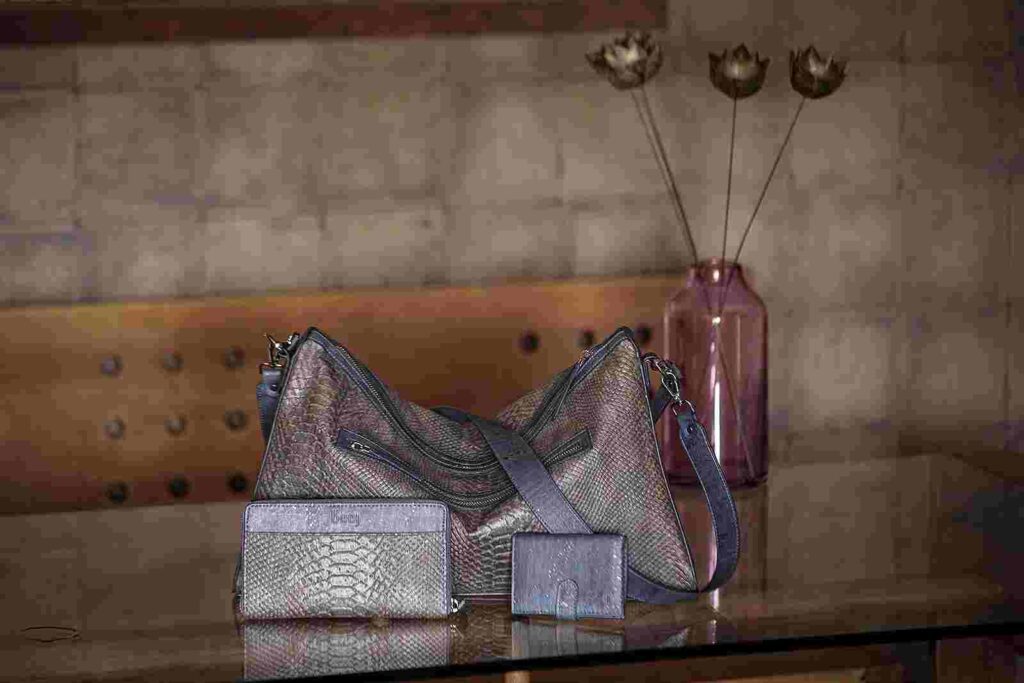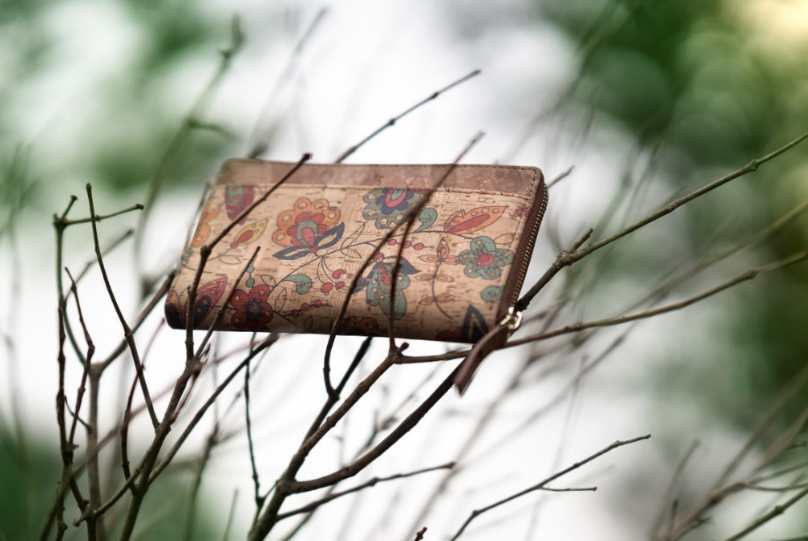Driven by the desire to combine sustainability with fashion, entrepreneur Arundhati Kumar founded ‘Beej’, a venture that wants to eliminate leather from fashion accessories and create high quality products with vegan alternatives. It hopes to expand the scope of sustainable alternatives into the world of high fashion.

Arundhati had worked as an HR professional for 17 years across multiple industries before she took the plunge to become a business owner. Like many businesses in the domain, Beej also suffered from the travails of a turbulent economic year, and has managed to persevere and come out stronger.
The Story Watch team had the chance to have a lively interaction with her, and here we share her inspiring tale.
Early Days
By education Arundhati is an MBA, who worked in the corporate world for a long time. But by the end of 2019, she grew restless in her role and began looking for avenues to start something of her own. Her father, owner of one of the leading leather export houses of Kolkata, desired for her to join his business. But Arundhati was convinced about launching a venture of her own.
When asked about how she developed an interest in sustainability, she recalls her short vacation to Europe a few months before setting up ‘Beej’. She recollects the heat wave sweeping the continent and discussing the advent of climate change.
We talk about a future climate crisis, but the crisis is already here. It’s already started.
Arundhati Kumar
“For a few years I have been increasingly conscious and concerned about the climate crisis, and what was happening around us. It started with small lifestyle shifts. At home, we moved away from single use plastics, I started using drip irrigation to water my plants, became more conscious of my shopping habits and so on,” she says.
Following her experience, she began looking for adaptable means to mitigate the crisis. There had to be a way we could contribute to slowing down the change.
So she started reading up on sustainable leather alternatives like cork, pineapple leather, cactus leather, etc. During her research she explored the brands that were working vegan leather, and realized that the vegan leather was made from PVC and was not sustainable at all.
Armed with new information she approached her father with a business idea. However, since he already ran a profitable company, he expressed his reluctance to shift. Mainstream demand for such products was years away, he reasoned.
Arundhati knew then that she would have to do this all by herself. Though intimidated, like any budding entrepreneur, she drove herself to take the first step.
She is a self-taught businesswoman who read a lot about sustainability before setting out to make her plans public. She spent about four months educating herself about quality control, material types, certifications, etc. Her avid reading habit, she admits, aided the education process.
What is Beej?

Studio Beej or ‘Beej’ was founded with the vision to make sustainability a mainstream fashion choice. It is a lifestyle and fashion accessories startup with environmental sustainability at the core of its philosophy. Beej produces premium products from leather alternatives, like cork, pineapple leaf fabric, recycled PET bottles, and cactus leaves, mostly sourced from abroad. Arundhati firmly believes that style and sustainability can and must coexist. Her company resonates with her belief of eco-friendly living.
She aspires to educate more people about such environmentally sound practices and hopes to be an impetus for them to switch from the prevalent unsustainable fashion choices.
We are very trend agnostic and want to supply products that can be used throughout the year.
Arundhati about how her brand is different from other fashion outlets
Studio Beej’s collection includes only a limited number of products. However, sticking to the motto of ‘Buy well, buy less and use it longer’, it focuses on quality more than quantity. Arundhati credits her karigars for the exceptional workmanship on each of her products.

The ultimate selling point for the small company, she says, is its authenticity and transparency. Over the past year, sustainability became the buzzword for the fashion fraternity. But Beej set itself apart by ensuring a customer-awareness approach. It presents all its certifications, suppliers, and even the manufacturing details for the perusal of the interested consumer. This fosters trust in the end-user who can verify if the sustainable tag is real, and not merely cosmetic.
When Studio Beej was still in its ideation it secured a place at the Atal Incubation Centre (AIC). In mid 2020, it became part of a UNDP program after being selected by the government as one of the 36 women run businesses to support last year.
Arundhati remarks about the prevalent sentiment in the entrepreneurial sector. At the coworking space she used to frequent, she interacted with a fellow woman business owner who cautioned her about the lack of monetary support for non-tech startups. Given the economic uncertainty at the time, Arundhati was not too keen to accept external funding. She knew it would take a while to make her venture profitable.
Fortunately, with the startup environment turning innovative everyday, her business was soon poised for takeoff. She is also gracious about all the support from her parents and family, especially her father, who had her back whenever she was unsure.
Making the Shift
Arundhati concedes she faced issues when first making the switch from a well-paying job to a turbulent business venture. Her experience with performance consulting, marketing, and branding came in handy at the time.
She recognizes her lack of fashion expertise as both a strength and a weakness. She relied on her own design sensibilities, very simple and serviceable, when envisioning Beej’s future portfolio. Unbound by any predefined notions, she enjoyed the freedom to customize her brand.

Today, she works with a team of designers and takes their consensus into consideration.
It wasn’t really hard. The hard part was starting up a business in 2020 by forgoing a steady paycheck.
Adapting to the Pandemic
Still in its infancy in 2020, Beej had a hard start because of the COVID-19 pandemic. With most of her karigars stuck at home, Arundhati worked with limited staff for several months, committed to pushing the business forward. She organized Zoom calls, and other means of communication to carry on working remotely.
But she knew building a brand in her niche, from the ground up, in India would be a difficult ordeal. She tried marketing her brand abroad instead. Though this did not pan out in 2020, Beej now has numerous promising collaborations in Dubai, Australia, and Canada. Also, the indifference to Chinese imports has facilitated Beej’s upward trajectory this year.
Social Media Engagement and Future Plans
The marketing for Arundhati’s brand gained traction through numerous social media engagements. In a country with most people unaware of sustainable fashion choices, internet proliferation has helped her promote conversations with all stakeholders in the ecosystem. Many prominent personalities from the fashion world have now gained insight into ‘Beej’ and its vision.
Beej has a hopeful future chalked out for itself. With plans to launch a Kickstarter campaign with a Canadian brand and tie-ups with multiple international clients, the small venture is slowly but surely going global.
A secondary objective for 2021 is to expand its footprint regionally in India by raising awareness, building internal capabilities, and improving design and marketing. Beej is also in talks with Myntra to enhance its local sales channels.
Parting Message
Arundhati often refers to herself as having been foolishly brave for setting out on her present path. But in hindsight, with her dream realized and growing support for sustainability, she has no regrets. She encourages others pondering a unique business idea to go forward. In conclusion, she shares an invaluable inspiring message for them -“If you have the conviction, you can ask for help and sure enough, you will get the help you need!”

